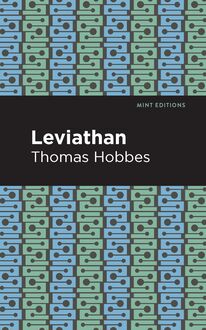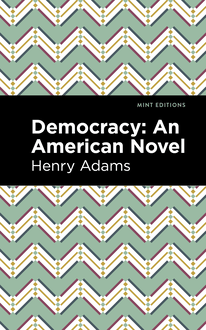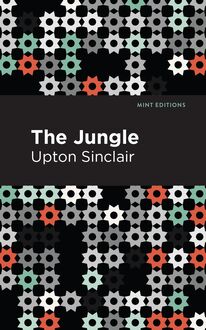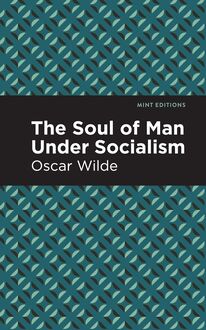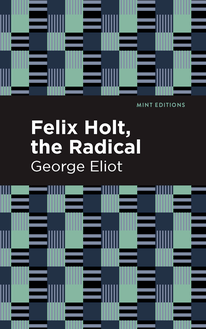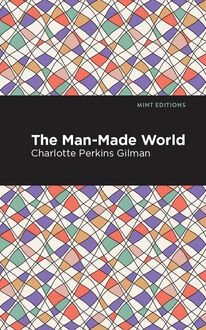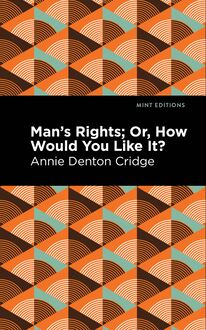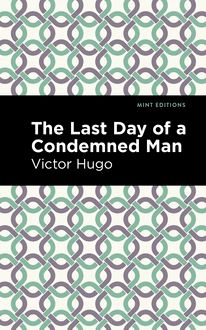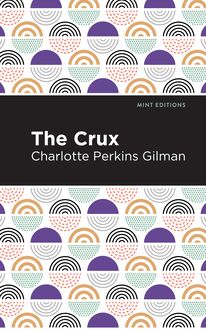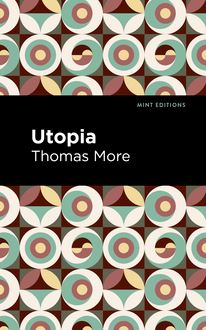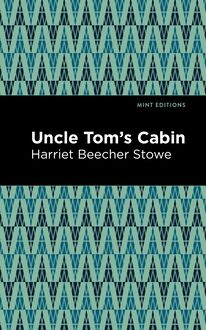-
 Univers
Univers
-
 Ebooks
Ebooks
-
 Livres audio
Livres audio
-
 Presse
Presse
-
 Podcasts
Podcasts
-
 BD
BD
-
 Documents
Documents
-
- Cours
- Révisions
- Ressources pédagogiques
- Sciences de l’éducation
- Manuels scolaires
- Langues
- Travaux de classe
- Annales de BEP
- Etudes supérieures
- Maternelle et primaire
- Fiches de lecture
- Orientation scolaire
- Méthodologie
- Corrigés de devoir
- Annales d’examens et concours
- Annales du bac
- Annales du brevet
- Rapports de stage
La lecture à portée de main
Vous pourrez modifier la taille du texte de cet ouvrage
Découvre YouScribe en t'inscrivant gratuitement
Je m'inscrisDécouvre YouScribe en t'inscrivant gratuitement
Je m'inscrisEn savoir plus
Vous pourrez modifier la taille du texte de cet ouvrage
En savoir plus

Description
The Last Day of a Condemned Man (1829) is a short novel by Victor Hugo. Having witnessed several executions by guillotine as a young man, Hugo devoted himself in his art and political life to opposing the death penalty in France. Praised by Dostoevsky as “absolutely the most real and truthful of everything that Hugo wrote,” The Last Day of a Condemned Man is a powerful story from an author who defined nineteenth century French literature. If you knew when and where you would die, how would you spend your final moments? For Hugo’s unnamed narrator, such an existential question is made reality. Sentenced to death for an unspecified crime, he reflects on his life as its last seconds wane in the shadows of a cramped prison cell. Recording his emotional state, observations, and conversations with a priest and fellow prisoner, the condemned man forces us to not only recognize his humanity, but question our own. With a beautifully designed cover and professionally typeset manuscript, this edition of Victor Hugo’s The Last Day of a Condemned Man is a classic work of French literature reimagined for modern readers.
Sujets
Informations
| Publié par | Mint Editions |
| Date de parution | 08 juin 2021 |
| Nombre de lectures | 0 |
| EAN13 | 9781513294247 |
| Langue | English |
| Poids de l'ouvrage | 1 Mo |
Informations légales : prix de location à la page 0,0500€. Cette information est donnée uniquement à titre indicatif conformément à la législation en vigueur.
Extrait
The Last Day of a Condemned Man
Victor Hugo
The Last Day of a Condemned Man was first published in 1840.
This edition published by Mint Editions 2021.
ISBN 9781513291390 | E-ISBN 9781513294247
Published by Mint Editions®
minteditionbooks.com
Publishing Director: Jennifer Newens
Design & Production: Rachel Lopez Metzger
Project Manager: Micaela Clark
Translation by Gilbert Campbell
Typesetting: Westchester Publishing Services
C ONTENTS U NDER S ENTENCE OF D EATH I II III IV V VI VII VIII IX X XI XII XIII XIV XV XVI XVII XVIII XIX XX XXI XXII XXIII XXIV XXV XXVI XXVII XXVIII XXIX XXX XXXI XXXII XXXIII XXXIV XXXV XXXVI XXXVII XXXVIII XXXIX XL XLI XLII XLIII XLIV XLV XLVI T OLD U NDER C ANVAS: B UG- J ARGAL P ROLOGUE I II III IV V VI VII VIII IX X XI XII XIII XIV XV XVI XVII XVIII XIX XX XXI XXII XXIII XXIV XXV XXVI XXVII XXVIII XXIX XXX XXXI XXXII XXXIII XXXIV XXXV XXXVI XXXVII XXXVIII XXXIX XL XLI XLII XLIII XLIV XLV XLVI XLVII XLVIII XLIX L LI LII LIII LIV LV E PILOGUE C LAUDE G UEUX
UNDER SENTENCE OF DEATH
I
S entenced to death!
For five whole weeks have I lived with this one thought, always alone with it, always frozen by its ghastly presence, always crushed beneath its overwhelming weight.
At first, years ago, as it seemed, not mere weeks as it really was, I was a man like any other. Every day, every hour, every minute was ruled by its own idea. My intellect, young and fresh, lost itself in a world of fantasy. I amused myself in mapping out a life without order, and without end, weaving into a thousand fantastic patterns the coarse and slender tissue of my existence. There were lovely girls, cardinals’ copes, victories won, theatres full of life and light, and then again the young girls, and walks in the twilight under the spreading boughs of the chestnut trees. My imagination always pictured scenes of pleasure. My thoughts were free, and therefore I was free also.
But now I am a prisoner. My body is in irons in a dungeon, and my soul is fettered by an idea—one horrible, murderous, and implacable idea. I have but one thought, one certainty, one deep-rooted conviction, and that is that I am under sentence of death!
Do what I may, that one terrible thought is ever with me, like a spectre by my side, lonely and jealous, driving away every effort that I may make to liberate myself from its presence, face to face with me, and clutching me with its icy hand when I endeavour to turn aside my head, or to close my eyes upon its horrifying existence.
It intrudes itself into all the thoughts by which I vainly strive to forget it; I hear it like a horrible chorus in every word that is addressed to me; it places its face against mine as I glance through the barred windows of my dungeon; it attacks me whilst waking, it haunts my spasmodic efforts at sleep, and appears in my dreams under the form of the axe of the guillotine.
It is still present as I wake up with a start, and say, “It is but a dream.” Well, even before my eyes have had time to open, and to see the whole terrible reality which surrounds me, written on the damp stone of my prison walls, in the pale rays of my lamp, in the coarse fabric of my clothes, in the dark figure of the sentinel whose bayonet gleams through the loophole of my dungeon, it seems as if a sonorous voice murmurs in my ears:
“Sentenced to death!”
II
I t was a lovely morning in August.
Three days had passed since my trial had been commenced; three days since my crime had collected every morning a crowd of curious spectators, who lounged on the benches of the court like carrion crows around a carcase; three days since that strange, half visionary procession of judges, of lawyers, of witnesses, and public prosecutors, had passed and repassed before me, sometimes ludicrous, but always murderous, always gloomy and fatal.
During the first two nights restlessness and nervousness had prevented me from sleeping; on the third, weariness and lassitude had conduced to slumber. At midnight I had left the jury still deliberating. Re-conducted to my cell, I had thrown myself on my pallet, and had fallen at once into a deep sleep—the sleep of forgetfulness. It was my first repose for many days. I was still wrapped in this profound slumber when they came and woke me. This time the tramp of the gaoler’s heavy shoes, the clink of his bunch of keys, and the harsh grating of the bolts, were not sufficient to arouse me from my stupor; he had to shake me, and to shout in my ear—“Get up!”
I opened my eyes, and with a bound rose from my couch. At that instant, through the narrow window pierced in the higher portion of the walls of my cell, I saw reflected upon the ceiling of the adjoining passage (the only means by which I could catch a glimpse of the sky), the sun. I love the sunlight.
“It is a fine day,” remarked I to the gaoler.
He remained silent for an instant, as though considering whether it were worth while to reply to me; then, as though making an effort, he answered sullenly—
“Yes, it seems so.”
I remained motionless, my intellectual powers almost dormant, and my eyes fixed upon that soft golden reflection that gilded the ceiling.
“It is a lovely day,” repeated I.
“Yes,” answered the man, “but they are waiting for you.”
These few words, like the web of the spider that intercepts the flight of the fly, threw me roughly back into every-day life. On a sudden I again saw, as in a flash of lightning, the court of justice, the table before the judges, strewn with blood-stained rags, the three ranks of witnesses with their expressionless faces, the two gendarmes at each side of the dock, the black gowns of the bar constantly moving to and fro, the heads of the crowd thronged together in the body of the court, and the fixed gaze of the twelve jurymen, who had watched whilst I had slept.
I rose up, my teeth chattered, my hands trembled so that I could hardly gather together my clothes, my legs bent under me. At the first step that I attempted to take I staggered like a porter whose load is too heavy for him. However, I nerved myself, and followed my gaoler.
The two gendarmes were waiting for me on the threshold of my cell. They handcuffed me again. It was rather a complicated lock, which they had some trouble in closing. I submitted passively—it was a machine put into a machine.
We passed through one of the inner courtyards; the fresh air of the morning gave me strength. I raised my head. The sky was of a bright blue, and the warm sunbeams, broken by the lofty chimneys, traced great angular lines of light on the tall and gloomy walls of the prison. In truth it was very beautiful.
We mounted a spiral staircase, we passed through one corridor, then another, and again through a third; then a low door was opened. A warm breath of air, and the sound of voices met me; it was the murmuring of the crowd in the court. I entered.
On my appearance there was a clang of arms and a confused sound of voices, seats were noisily pushed aside, and as I passed through the long room between the lines of spectators, kept in position by soldiers, it seemed as if I were the centre point upon which every eye was fixed.
At that instant I perceived that my irons had been removed, but when and how I knew not.
Then there was a deep silence. I had reached my appointed place. As the disturbance ceased in the crowd, so my ideas grew clearer. I understood what I had before only vaguely surmised—that the decisive moment had arrived, and that I had been brought into court to hear my sentence.
Explain it as you may, when this idea entered my head I felt no fear. The windows of the court were wide open, the fresh air and the busy hum of the city poured in freely; the court was as neatly arranged as if it was to be the place in which a marriage was to be celebrated; the bright rays of the sun traced here and there the luminous shadows of the casements, sometimes spread upon the floor, sometimes portrayed on the tables, now and then broken by the angles of the walls; whilst the beams themselves, shining through the panes of glass, looked like great bars of golden dust. The judges at the end of the room wore a self-satisfied air—no doubt pleased that their task was so nearly concluded. The face of the President, upon which the reflection of one of the panes of glass shone, was calm and benevolent, whilst one of his younger colleagues played with his cap as he conversed gaily with a young lady in a pink bonnet, for whom he had procured a seat just behind himself. The jury alone looked pale and worn out, evidently from having remained awake during the long watches of the night; some of them were yawning. The expression of their faces gave no indication that they felt the responsibility of the sentence that they were about to pronounce, the only noticeable point amongst these worthy shopkeepers being an evident desire for sleep.
Exactly opposite to me was a tall window wide open. Through it I could hear the laughter of the stall-keepers on the quays, and in a crevice in the window-sill was a pretty little yellow floweret waving to and fro in the wind.
How, in the midst of all these pleasing objects, could any unpleasant idea intrude itself? With the balmy air, and the bright sun playing around me, it was impossible to think of anything else except liberty. Hope shone round me like the sunbeams; and in full confidence I awaited my sentence with the feelings of a man looking forward to life and freedom. And now my counsel arrived; he had evidently been breakfasting luxuriously. We were waiting for him. As he moved into his place, he bent towards me, and whispered—
“I have hope still.”
“Indeed,” answered I, in the same light tone, with a smile on my lips.
“Yes,” returned he; “I do not yet know what line the prosecution will take, but if they cannot prove premeditation, you will only get penal servitude for life.”
“How, sir!” exclaimed I, indignantly. “Sooner death a thousand times
-
 Univers
Univers
-
 Ebooks
Ebooks
-
 Livres audio
Livres audio
-
 Presse
Presse
-
 Podcasts
Podcasts
-
 BD
BD
-
 Documents
Documents
-
Jeunesse
-
Littérature
-
Ressources professionnelles
-
Santé et bien-être
-
Savoirs
-
Education
-
Loisirs et hobbies
-
Art, musique et cinéma
-
Actualité et débat de société
-
Jeunesse
-
Littérature
-
Ressources professionnelles
-
Santé et bien-être
-
Savoirs
-
Education
-
Loisirs et hobbies
-
Art, musique et cinéma
-
Actualité et débat de société
-
Actualités
-
Lifestyle
-
Presse jeunesse
-
Presse professionnelle
-
Pratique
-
Presse sportive
-
Presse internationale
-
Culture & Médias
-
Action et Aventures
-
Science-fiction et Fantasy
-
Société
-
Jeunesse
-
Littérature
-
Ressources professionnelles
-
Santé et bien-être
-
Savoirs
-
Education
-
Loisirs et hobbies
-
Art, musique et cinéma
-
Actualité et débat de société
- Cours
- Révisions
- Ressources pédagogiques
- Sciences de l’éducation
- Manuels scolaires
- Langues
- Travaux de classe
- Annales de BEP
- Etudes supérieures
- Maternelle et primaire
- Fiches de lecture
- Orientation scolaire
- Méthodologie
- Corrigés de devoir
- Annales d’examens et concours
- Annales du bac
- Annales du brevet
- Rapports de stage
